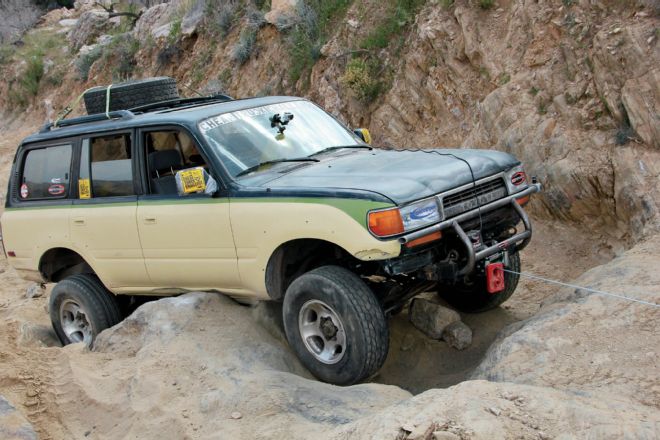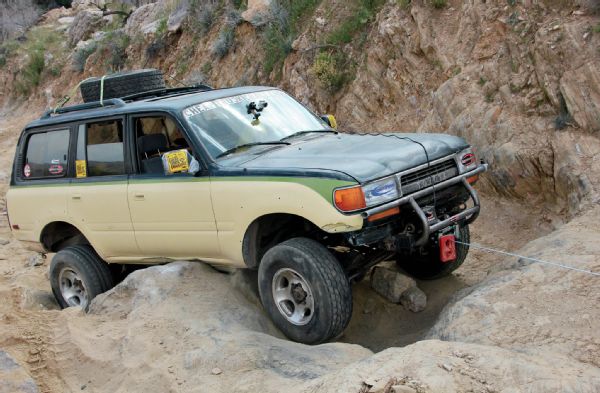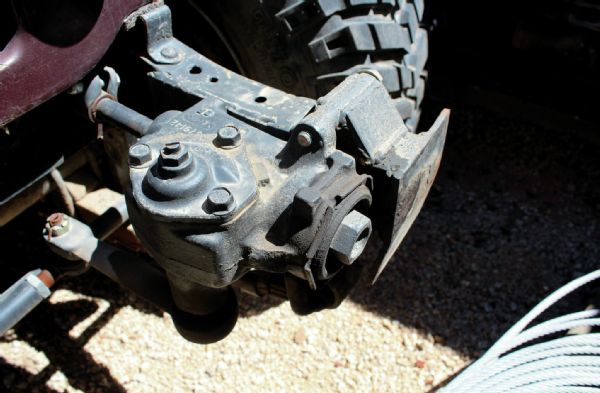
Tire Sensors
Q I bought a base model ’14 Chevy 4x4 Silverado 1500 pickup. I want to buy some aftermarket wheels and tires to run in the summer and use the stock steel wheels in the winter. I see that the truck has tire pressure sensors. Do I need to have these sensors in my new wheels, or will it cause a dash light to come on? Will the truck run normal without them? Also, if I need the sensors, do I need factory ones or will aftermarket do
Greg G.
Via [email protected]
A Unfortunately you are going to need tire pressure sensors. All vehicles with a GVW under 10,000 pounds manufactured since 2008 have a built-in tire pressure monitoring system (TPMS) by federal law, and many manufacturers implemented TPMS systems prior to 2008. The system warns the driver of the vehicle if a tire falls below a minimum pressure by illuminating a warning light on the dash. The theory is that this will reduce the number of blowouts, rollovers, and other accidents related to tire failure. The same warning light happens if the system can’t read the tire pressure sensors at each corner. Though there is no impact on drivability when the TPMS light is on, the light’s annoying. Many brand-new vehicles also accompany the warning light with an audible chime at startup or even periodically as you drive, making sensors in the tires pretty much mandatory unless you like annoying buzzers and lights.
When most people upgrade to a different wheel, they usually pay a little extra to have the original tires and wheels broken down so that the sensors can be transferred to the new wheels. Since you are planning on keeping and using your stock set, you’ll need to pony up for sensors for the new wheels. Prices vary according to the vehicle manufacturer and the sensor style, but you can plan on spending about $35 apiece for the ones on your truck. Aftermarket sensors do exist and will become more and more prevalent as TPMS vehicles continue to age, but it’s hard to beat the reliability and price of the factory sensors. Also make sure that the wheels you purchase are compatible with the sensors.
Some people have figured out a way to defeat TPMS by putting all four sensors in the spare tire or even putting them in a pressurized canister and stashing the canister in the truck, but I wouldn’t recommend this. While somewhat annoying, the TPMS is a vehicle safety feature, much like ABS and stability control. Remember that you might not be the only person who drives your truck. It is a handy feature if you are as casual as I am about checking tire pressures.
First 4x4
Q I am 14, and I have been looking at first cars for a long time. I have a sweet spot for Toyotas and my dad has an old FJ40. I have been thinking about getting an FJ62 but my parents are concerned about safety. Are those OK, or are they a deathtrap? I have also looked at FZJ80s, but I think gas mileage would be horrible. But then I think about just getting an ’04 Tundra or Tacoma. What do you think would be the best first car?
Andrew B.
Via [email protected]

A Your question is the whole premise behind our Cheap Truck Challenges, the most recent of which ran last issue (Jan. ’14). What is a good 4x4 for a young guy on a limited budget? There are a lot of answers and a lot of affordable and potentially good first 4x4s, but since you have a preference for Toyotas, we’ll stick to those.
It’s hard to go wrong with just about any Toyota truck. They’re tough, they’re easy to work on, and they run forever. They are also popular, so there’s plenty of aftermarket support for most models. While FJ40s are awesome trucks, they are also old enough to be sought after by collectors in addition to being very popular among off-roaders, and as such they command big money for one that’s in decent shape. While everyone flocks to FJ40s, the fact is most of the later Land Cruisers are also excellent choices, and some models are surprisingly affordable. All of them came with solid front axles, coil spring suspension, and most of them are fuel-injected. They have plenty of room for hauling your buddies and camping equipment around in addition to being surprisingly capable off-roaders even in stock form. Though none of them are going to win any land-speed records and most don’t get the greatest gas mileage, they’re all pretty solid and even have enough safety features to keep your mom happy.
You are wise to prefer ’88-’90 FJ62s over emissions-choked and carbureted ’81-’87 FJ60s, but we wouldn’t turn down an FJ60 at a good price if we were you, as long as you live someplace where emissions aren’t a concern. A quick local Craigslist search showed pricing is all over the map for these Land Cruisers, but we were able to find a couple of running examples for a reasonable amount of money.
Of course, the newer the vehicle, the higher the price, but FJ80s and FZJ80s can sometimes be found within a high school budget. FZJs are a little more desirable because they are newer and have a more powerful engine. Some of these even came with factory lockers, so focus on scoring one of those for the ultimate factory 4x4 with excellent off-road manners. Editor Fred Williams built an FZJ80 for last year’s Cheap Truck Challenge and even did a few upgrades to it afterward for stories that ran in the magazine, so if you end up with an FZJ check out past issues or visit our supersite, fourwheeler.com, to get some ideas
Aside from Land Cruisers, don’t count out the older pickups and 4Runners. Though equipped with IFS, they were all fuel-injected by 1986, they all have great engines (aside from the 3.0L that liked to pop head gaskets), and they all have slightly stronger aftermarket support than the Cruisers. They also tend to be less expensive. A newer Tundra or Tacoma is also a strong choice if you can afford one, but everybody has one of those. If you want to be different, go for a Cruiser.
Wobbly CJ
Q I was wondering if you could help me diagnose what is causing the death wobble on my ’59 Willy’s CJ-5. It has Rancho 1-inch lift springs and stock shocks and is on 33-inch tires. Besides that, it is stock. I took it around the block, and once I got into Second gear it shook like I was in an earthquake. This was after I put the Rancho lift springs on it. Any ideas
Ryan Hughes
Via [email protected]

A Death wobble can be caused by a variety of things depending on the suspension and steering design. On your CJ, I would check the wheel bearings and kingpins on the front axle, as any play in them could cause what you describe. Tires can also cause death wobble if they are really old or out of balance. But since you indicate that this started after you installed the lift springs, the culprit is likely in the steering. Your Jeep has a complicated and problem-prone Ross steering system that doesn’t generally like lift kits. Though just a 1-inch lift shouldn’t cause much of an issue, if there was something in the steering that was already marginal, the modest increase in ride height could have put it over the edge. Inspect all of the steering components closely, including the steering box, linkage, and bell crank for any play, and replace those items as necessary.
If this is a Jeep you intend to modify more in the future, you might want to consider converting the Jeep to a Saginaw steering box with a traditional tie rod and drag link. There are a few different manual and power steering conversion kits out there, including a couple of systems from Herm the Overdrive Guy (hermtheoverdriveguy.com). Converting the steering is a fairly big project, but in the end you will have a durable and less problematic steering system that can more easily handle future upgrades.
Submission Information
Confused? Email your questions about trucks, 4x4s, and off-roading tech using “Nuts, I’m confused” as the subject and include a picture (if it’s applicable). Digital photos must measure no less than 1600 x 1200 pixels (or two megapixels) and be saved as a TIFF, an EPS, or a maximum-quality JPEG file. Also, I’ll be checking the forums on our website (4wheeloffroad.com), and if I see a question that I think more of you might want to have answered, I’ll print that as well. Otherwise drop it old-school style with the envelope addressed to the address below. Letters published in this magazine reflect the opinions of the writers, and we reserve the right to edit letters for clarity, brevity, or other purposes. Write to: Nuts & Bolts, 4-Wheel & Off-Road, 831 S. Douglas St., El Segundo, CA 90245 fax to: 818.566.8501 Email to: [email protected]